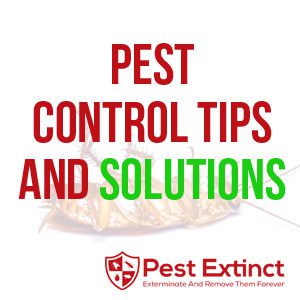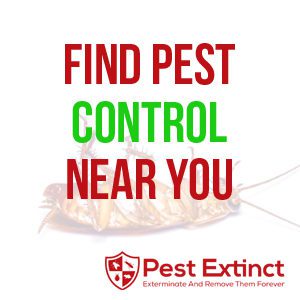
Cost of Pest Control Services: Understanding Pricing and Value
When it comes to pest control, understanding the pricing and the value behind the service is crucial for homeowners and business owners alike. The cost of pest control services can vary significantly, and it’s often influenced by several key factors. This blog aims to provide a comprehensive overview of what goes into the pricing of pest control services and the inherent value they offer in terms of safety, effectiveness, and long-term prevention.
Factors Influencing Pest Control Costs
Understanding the nuances of what influences the cost of pest control services is essential for customers to make informed decisions. Let’s explore these factors in greater detail to provide a clearer understanding of how they impact the overall cost.
The Complexity of the Pest Problem
- Type and Behavior of Pests: Different pests have varying behaviors and resilience. For example, cockroaches and bed bugs are known for their tenacity and can be more challenging to eradicate than other pests, often requiring more intensive treatment plans.
- Life Cycle and Reproduction Rates: Pests like fleas or termites with rapid reproduction rates or complex life cycles may necessitate more frequent or prolonged treatment, thereby increasing costs.
Size and Accessibility of the Infested Area
- Layout and Accessibility: The complexity of the property’s layout can impact the cost. Hard-to-reach areas like crawl spaces, attics, or extensive wall voids may require specialized equipment or techniques.
- Extent of Infestation: Widespread infestations in large buildings or across multiple rooms will typically incur higher costs due to the increased amount of treatment needed.
Environmental and Safety Considerations
- Eco-Friendly and Safe Treatments: Demand for environmentally friendly and safe treatment options is rising. These methods, while beneficial for safety and environmental impact, may involve more sophisticated and costly techniques compared to conventional treatments.
- Regulatory Compliance: Adhering to local and federal regulations regarding pest control treatments can also affect the cost, especially if specialized products or methods are mandated for safety and environmental protection.
Treatment Frequency and Longevity
- One-Time Versus Ongoing Treatments: While some pest problems can be resolved with a single visit, others require a series of treatments. Ongoing treatment plans, like those for preventing termites or seasonal pests, can be more cost-effective in the long run but require a commitment to regular service.
- Guarantees and Follow-Ups: Services that include follow-up visits or offer guarantees can be more expensive upfront but provide added value and assurance that the pest problem will be resolved.

Specialized Services
- Integrated Pest Management (IPM) Approaches: IPM focuses on long-term prevention and uses comprehensive information about pests and their environment. This approach can be more cost-intensive initially but offers sustainable solutions.
- Specialized Pest Control Services: Certain situations, like dealing with wildlife or extensive termite damage, require specialized skills and tools, reflecting in higher service costs.
Geographic Location
- Local Market Rates: Costs can vary significantly based on your geographic location. Urban areas might have higher rates due to increased demand and operational costs.
- Regional Pest Trends: Certain areas may have prevalent issues with specific types of pests, which can impact the frequency and type of treatment needed, thus affecting cost.
The cost of pest control services is multifaceted, with various elements playing a role in determining the final price. Factors like the complexity of the pest problem, the size and accessibility of the infested area, environmental considerations, treatment frequency, specialized services, and geographic location all contribute to the cost structure.
Understanding the Value of Professional Pest Control
Health and Safety
- Protecting Health: Pests can pose serious health risks. Professional pest control helps mitigate these risks by effectively eliminating pests that can carry diseases or cause allergies.
- Safety of Treatment: Professionals are trained in safely applying treatments, reducing the risk associated with pesticide use.
Effectiveness and Efficiency
- Expertise and Experience: Pest control professionals have the expertise and experience to effectively and efficiently deal with pest problems, ensuring a higher success rate than DIY methods.
- Tailored Solutions: Professionals can provide customized solutions based on your specific situation, increasing the effectiveness of the treatment.
Long-term Prevention
- Preventive Measures: Professional services often include preventive measures to ensure pests do not return, offering long-term protection and peace of mind.
- Follow-up Services: Many pest control companies offer follow-up services to monitor and ensure that the pest problem is completely resolved.
Cost Savings Over Time
- Avoiding Costly Damages: Investing in pest control can save money in the long run by preventing costly damages that pests like termites can cause to a property.
- Reduced Need for Repairs: By addressing pest issues promptly, you can avoid more extensive repairs that might be needed due to pest-related damages.


The Impact of Professional Pest Control on Business Operations and Residential Living
When considering professional pest control services, it’s important to recognize their broader impact on both business operations and residential living. These services go beyond merely removing pests from the premises; they play a crucial role in creating a conducive and safe environment for both work and daily living.
Enhancing Workplace Productivity and Reputation
In a business setting, the presence of pests can significantly hinder productivity and employee morale. Pest issues can cause distractions, unease, and even health concerns among staff. By ensuring a pest-free workplace, professional pest control services contribute to a more productive and comfortable work environment. Additionally, for businesses that deal with customers on-site, such as retail stores or restaurants, maintaining a pest-free environment is critical for preserving reputation and customer trust. The assurance of professional pest management can bolster a business’s image and customer perception.
Improving Quality of Life in Residential Spaces
For homeowners, the impact of professional pest control services on the quality of daily life is profound. Homes are places of comfort and safety, and the intrusion of pests can disrupt this sense of security. Whether it’s the threat of disease-carrying rodents or the annoyance of insect infestations, pests can significantly impact the quality of living. Professional pest control not only addresses these issues but also contributes to the overall well-being of residents by creating a cleaner, safer, and more comfortable living environment.
Contributing to Public Health and Community Well-being
On a larger scale, professional pest control plays a vital role in public health and community well-being. Certain pests, such as mosquitoes and rodents, are known carriers of diseases that can pose significant health risks to communities. Effective pest control helps in mitigating these risks, contributing to the overall health and safety of the community. By controlling pest populations, professional services also help in reducing the spread of diseases, making neighborhoods safer for everyone.
Adding Value Through Expertise and Innovation
Professional pest control services are continuously evolving, incorporating new technologies and methods to provide more effective and efficient solutions. This innovation adds considerable value, offering clients the latest in pest management techniques. The expertise of trained professionals in understanding pest behaviors, habitats, and treatment methods ensures that pest issues are addressed comprehensively, reducing the likelihood of recurrence.
The scope of professional pest control services extends far beyond the immediate task of removing pests. These services play an integral role in enhancing workplace productivity, improving residential life, contributing to public health, and bringing expertise and innovation to pest management. Understanding these wide-ranging impacts underscores the importance and value of investing in professional pest control services.


Understanding the Risks of DIY Pest Control and the Importance of Professional Services
While the idea of handling pest control through DIY methods may seem cost-effective and straightforward, it often overlooks the potential risks and complexities involved. Let’s delve into the dangers of DIY pest control and why hiring a professional is a crucial decision for effective and safe pest management.
The Pitfalls of DIY Pest Control
- Misidentification of Pests: Proper identification of pests is crucial for effective treatment. DIY efforts often result in misidentification, leading to ineffective treatment methods.
- Ineffective Treatment: Over-the-counter pest control products may not be potent enough for certain infestations, leading to recurring pest problems.
- Health and Safety Risks: Incorrect usage of pesticides and chemicals in DIY pest control can pose serious health risks to occupants of the space, including potential chemical poisoning or allergic reactions.
- Environmental Impact: Misuse of chemicals can also have detrimental effects on the environment, including harm to non-target species and pollution.
The Value of Professional Pest Control Services
Expertise and Experience
- Accurate Identification and Assessment: Professionals have the expertise to accurately identify pests and assess the extent of the infestation, ensuring that the right treatment methods are employed.
- Tailored Solutions: Based on their assessment, pest control experts provide customized treatment plans that are far more effective than generic over-the-counter solutions.



Advanced Methods and Tools
- Access to Professional-Grade Products: Professionals have access to more potent and effective treatment products that are not available to the general public.
- Advanced Tools and Techniques: They use the latest tools and techniques to manage pest problems more effectively and safely.
Safety and Compliance
- Adherence to Safety Standards: Professional pest control services adhere to stringent safety standards to protect your health and the environment.
- Regulatory Compliance: They are knowledgeable about and comply with local and federal regulations regarding pest control, ensuring legal compliance and safety.
Long-Term Prevention
- Preventive Strategies: Beyond treating the immediate problem, professionals also focus on preventive measures to ensure long-term pest control.
- Follow-up and Monitoring: Many services include follow-up visits and monitoring to ensure that the pest problem is completely resolved and to prevent future infestations.
The risks associated with DIY pest control, coupled with its often limited effectiveness, highlight the importance of professional pest control services. By leveraging their expertise, experience, and access to advanced methods, professionals not only address your immediate pest concerns but also provide long-term, safe, and effective solutions.
The cost of pest control services is influenced by various factors, but understanding the value behind these costs is key. Investing in professional pest control not only addresses the immediate pest problem but also contributes to the long-term safety, health, and preservation of your property.

Leave a Reply